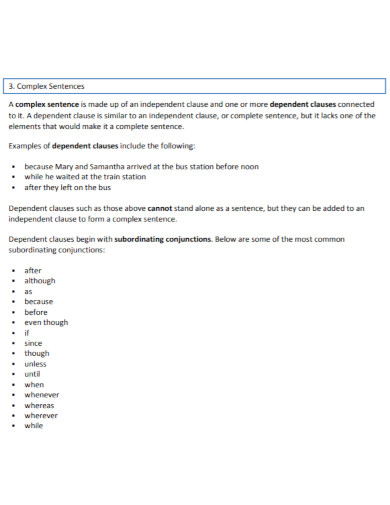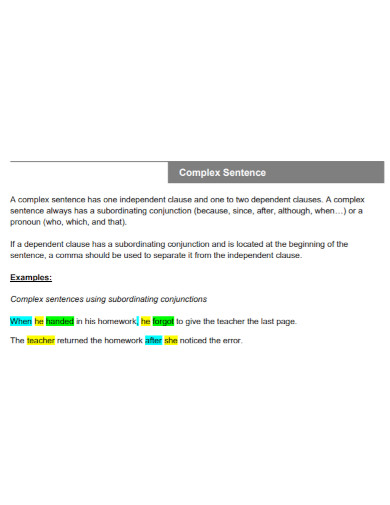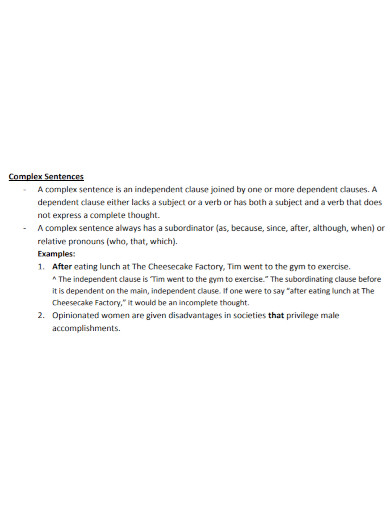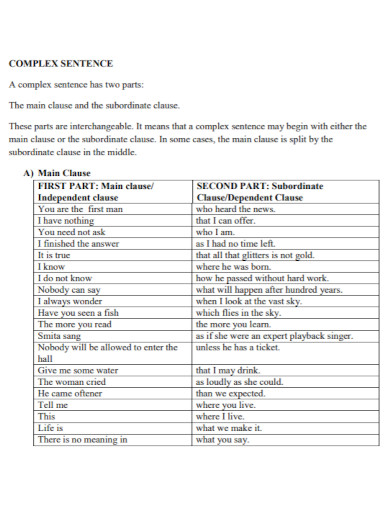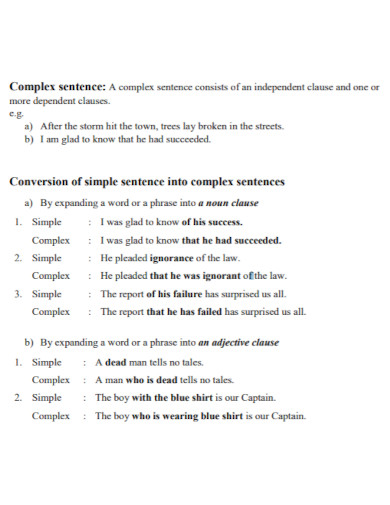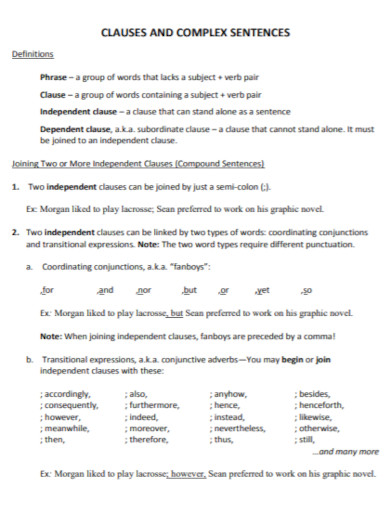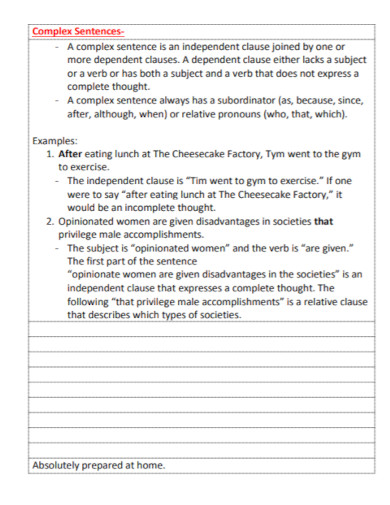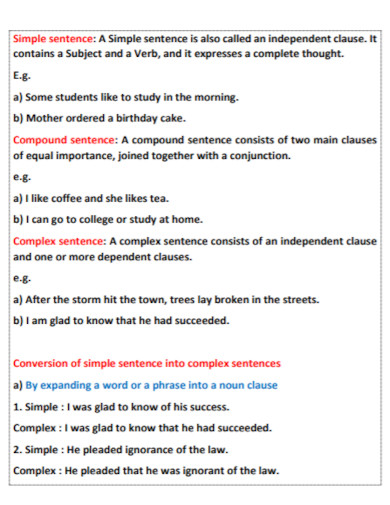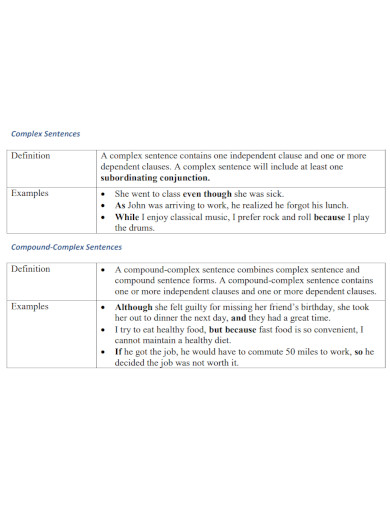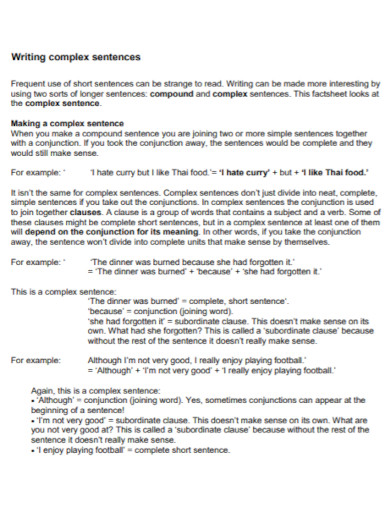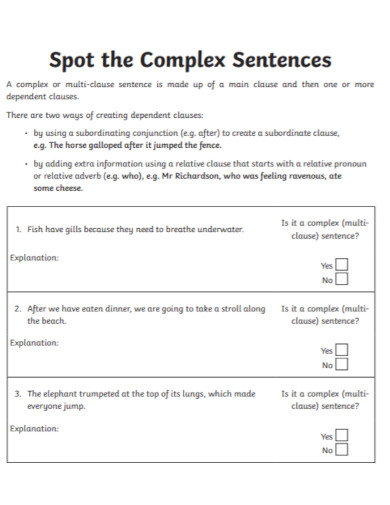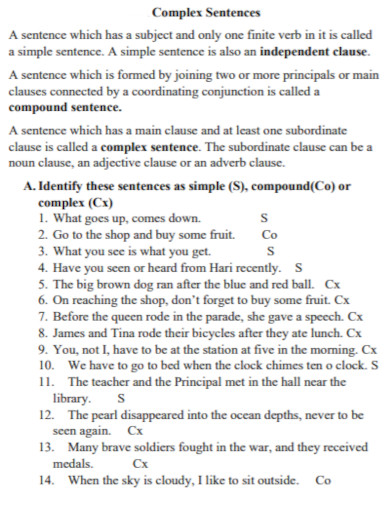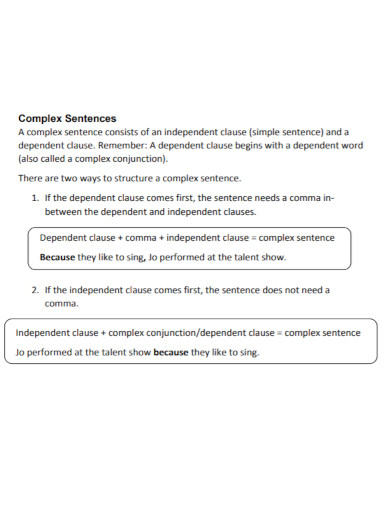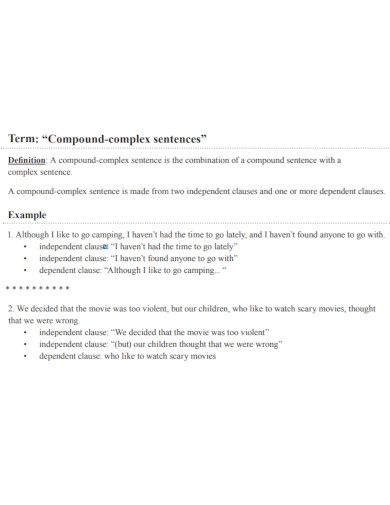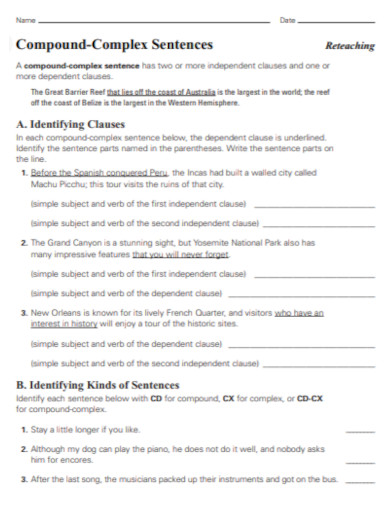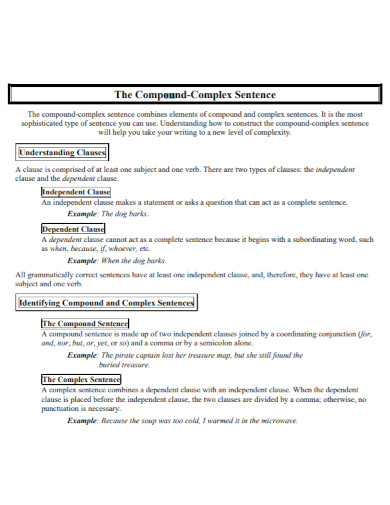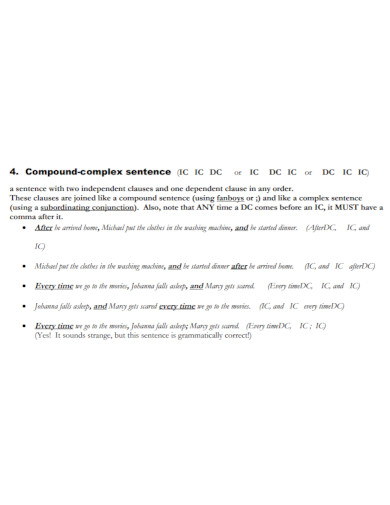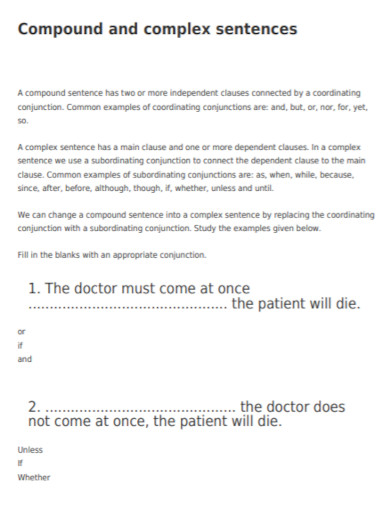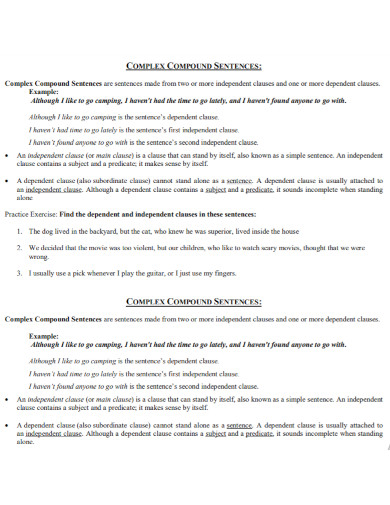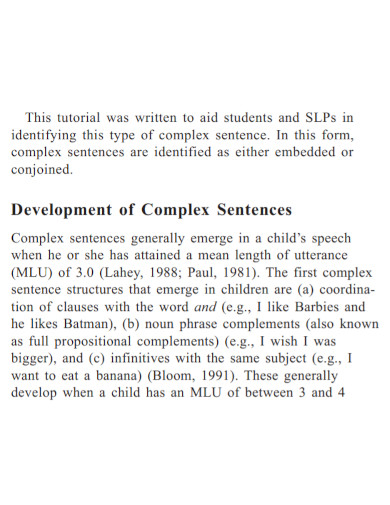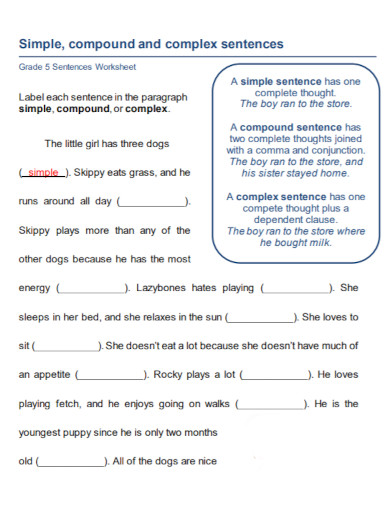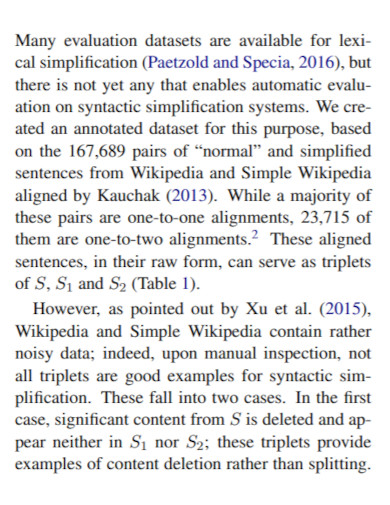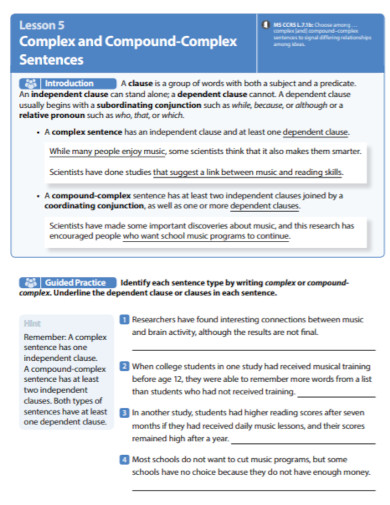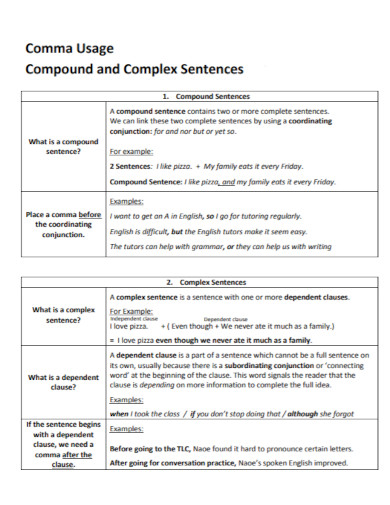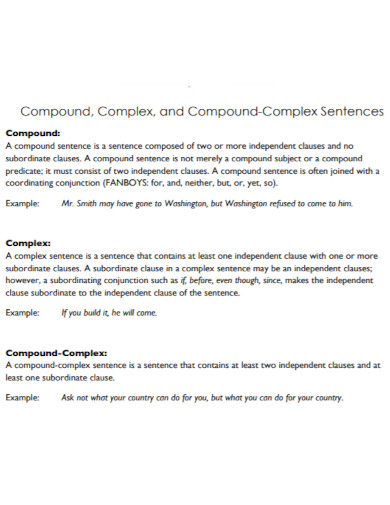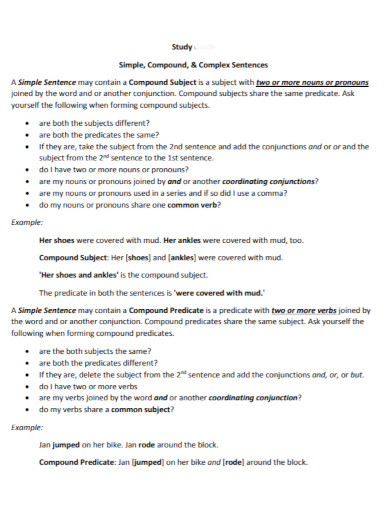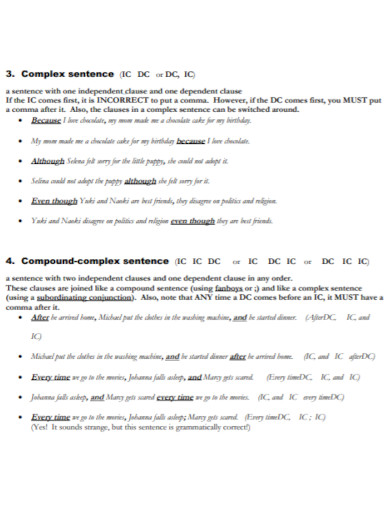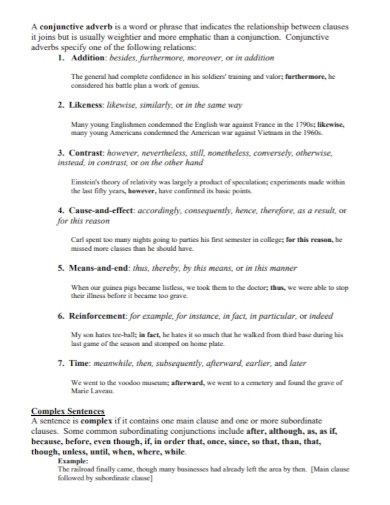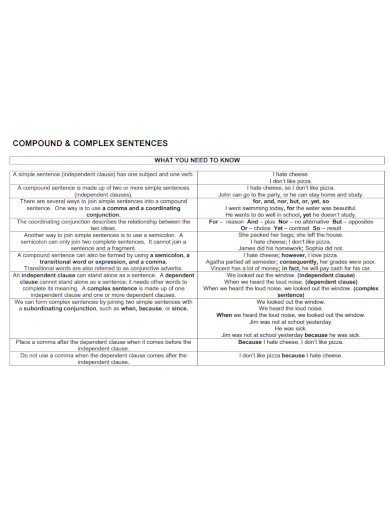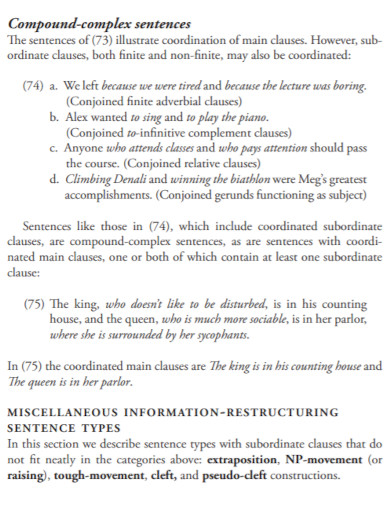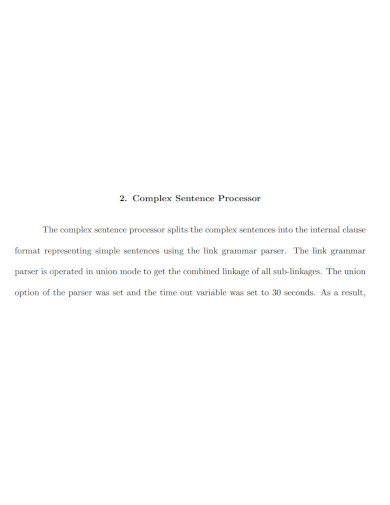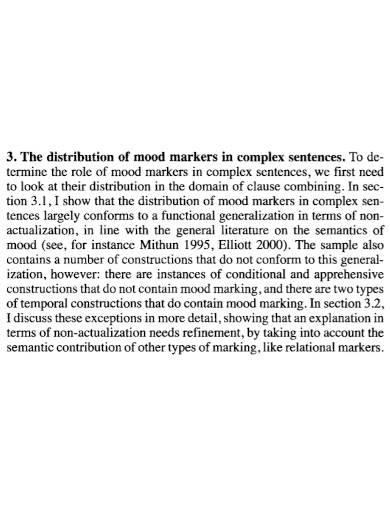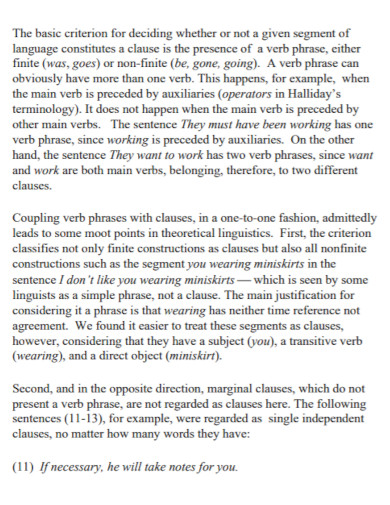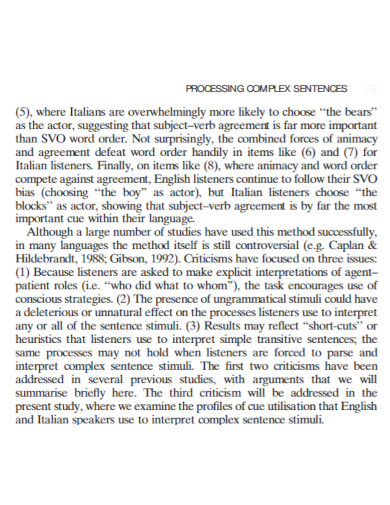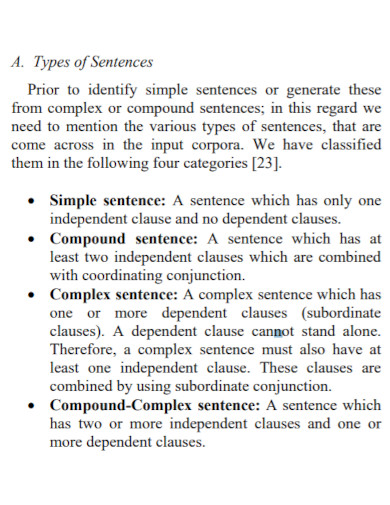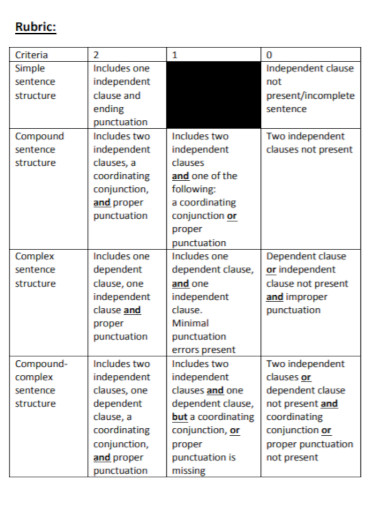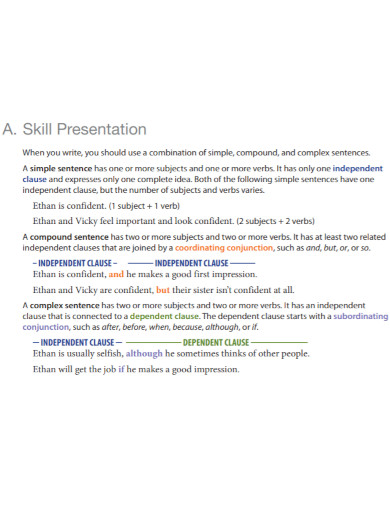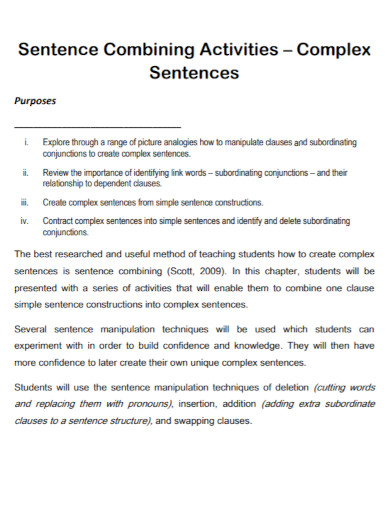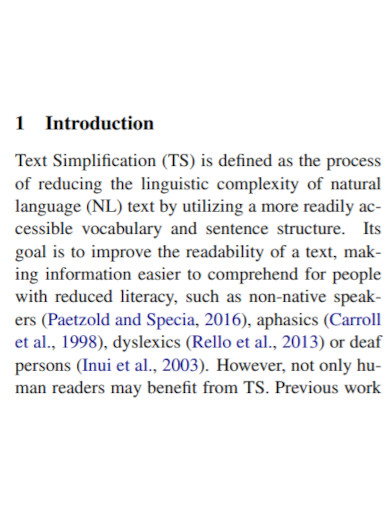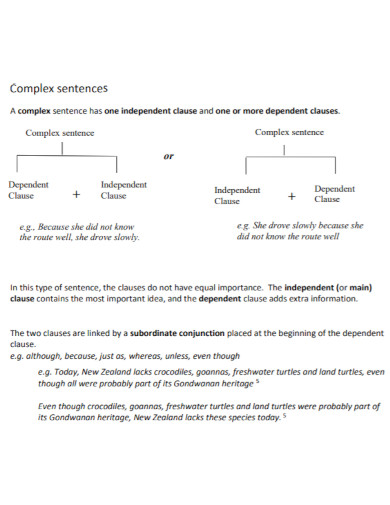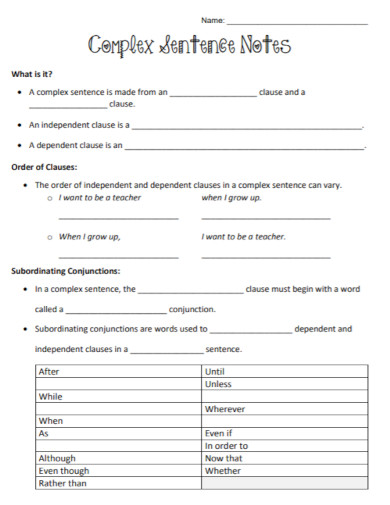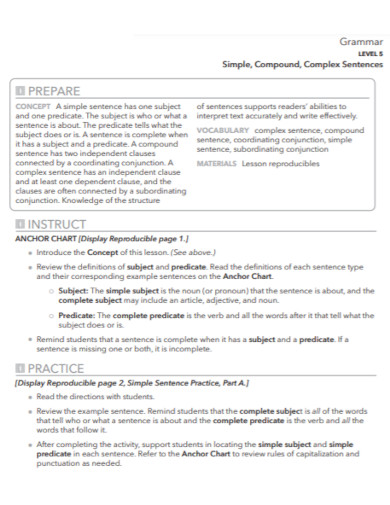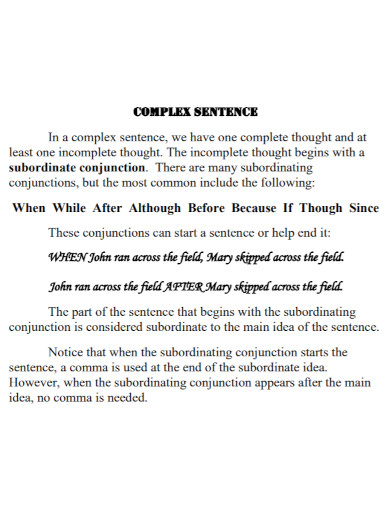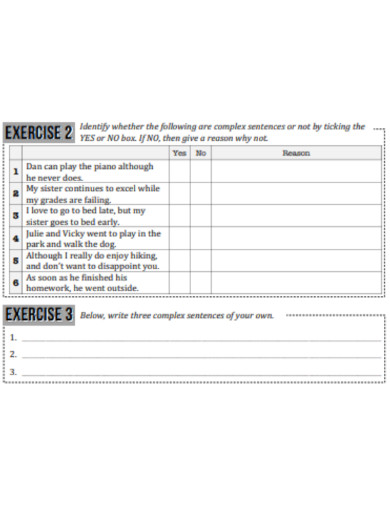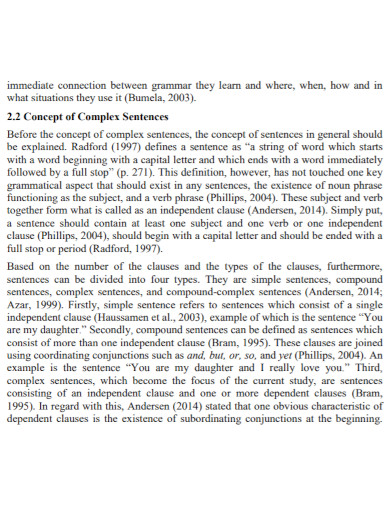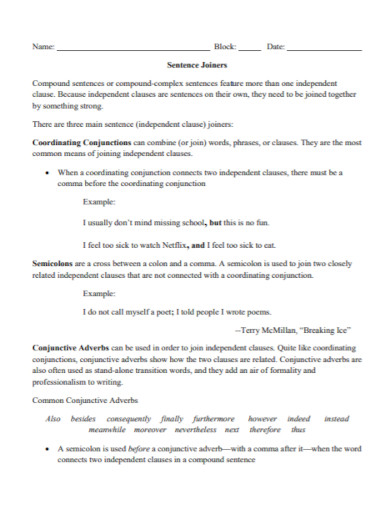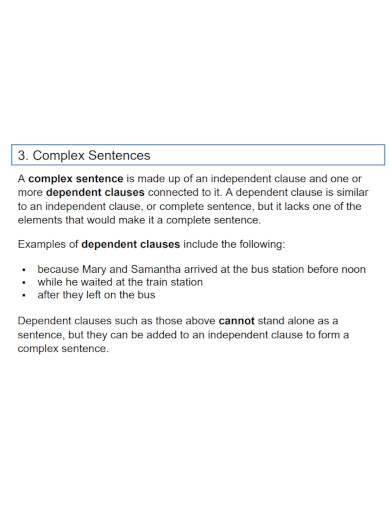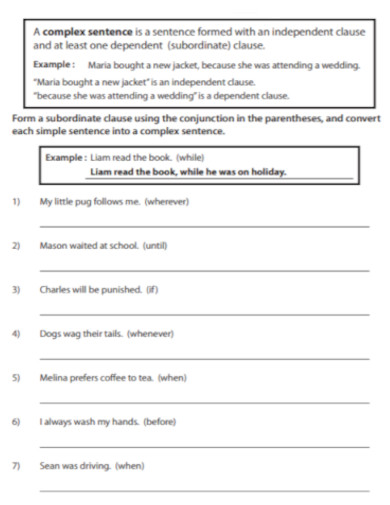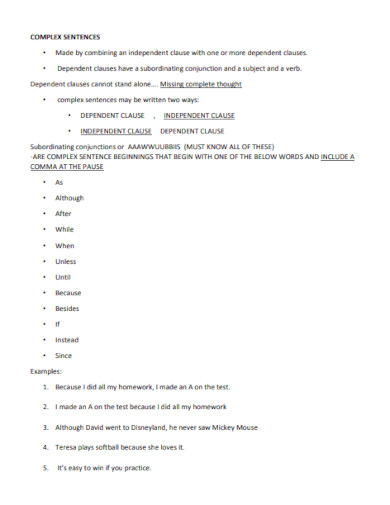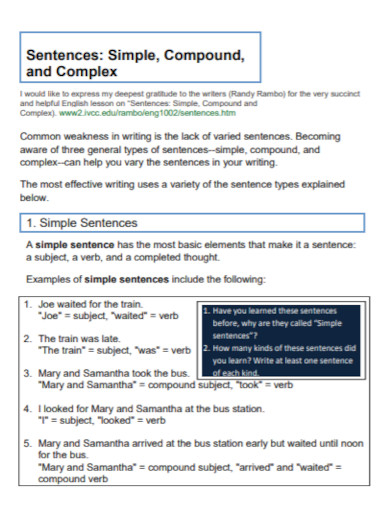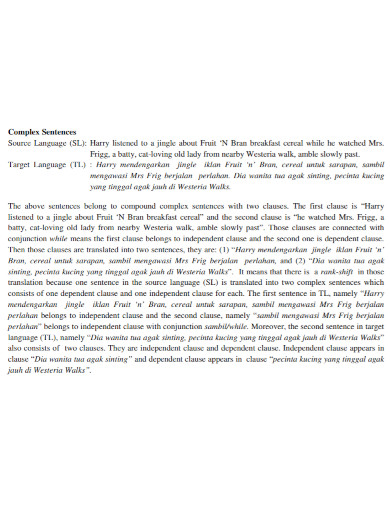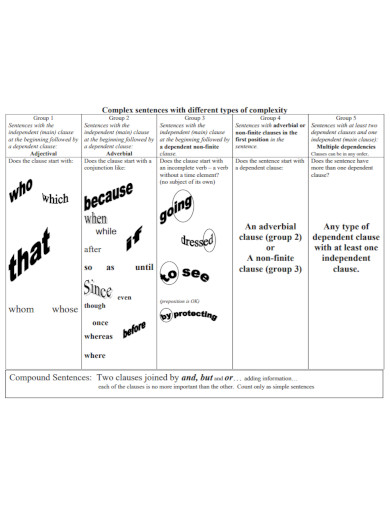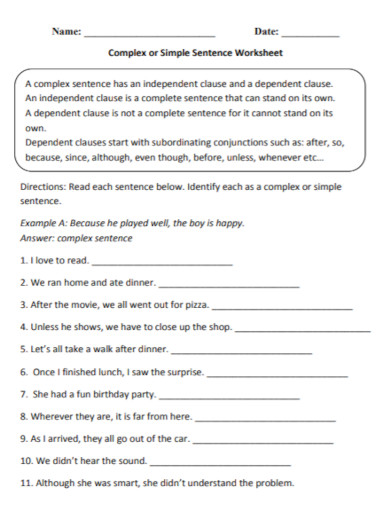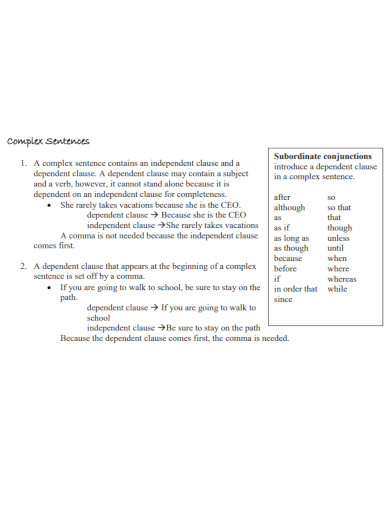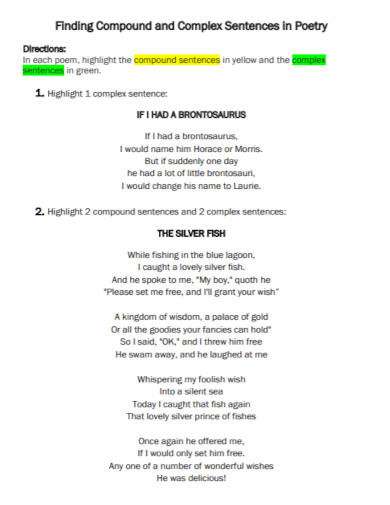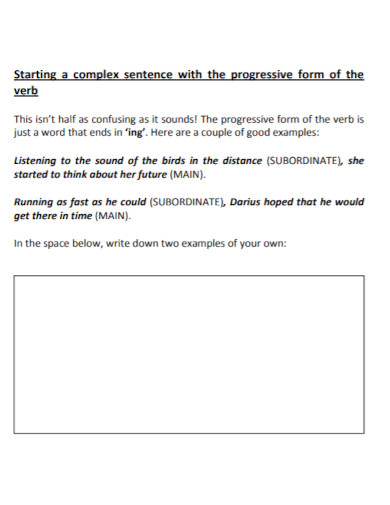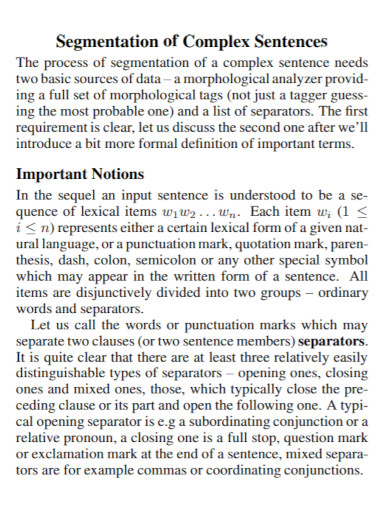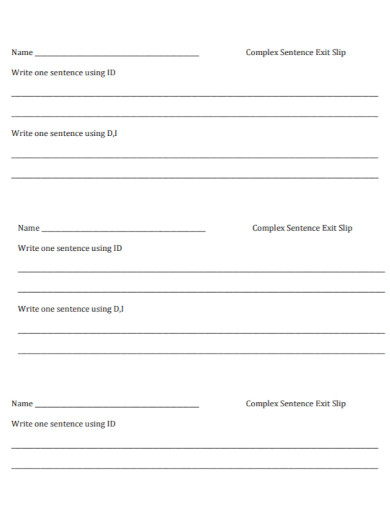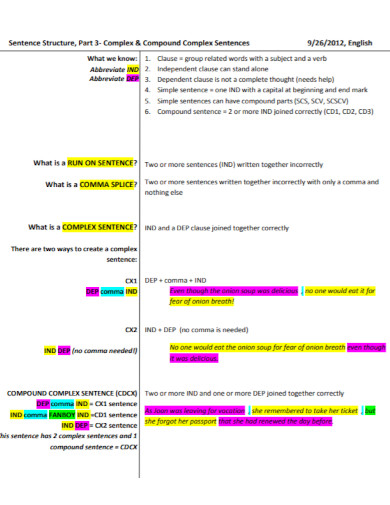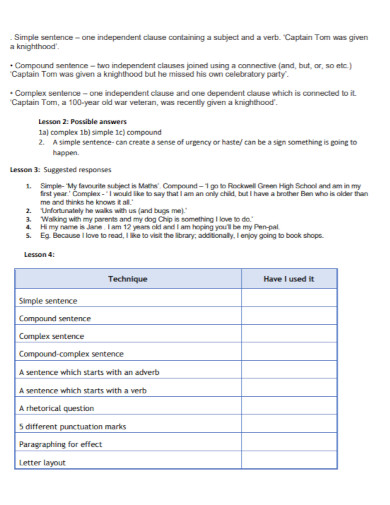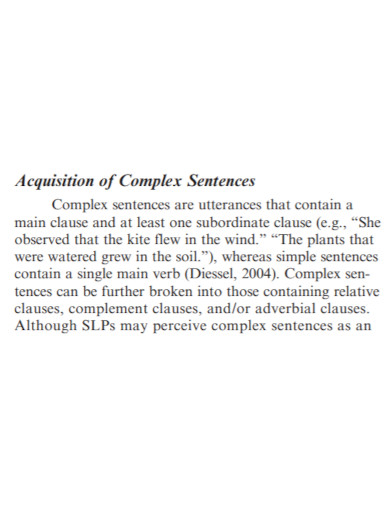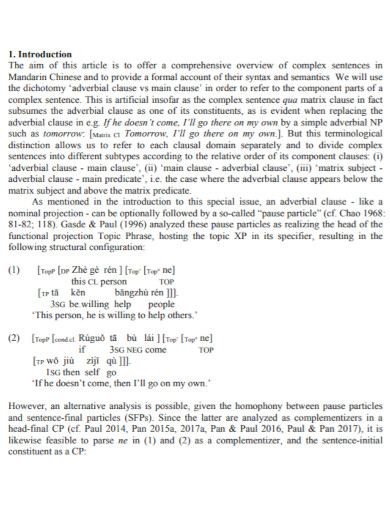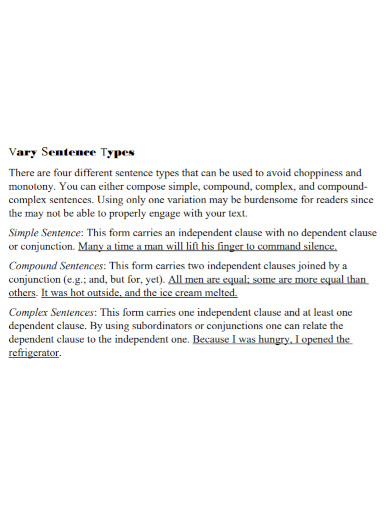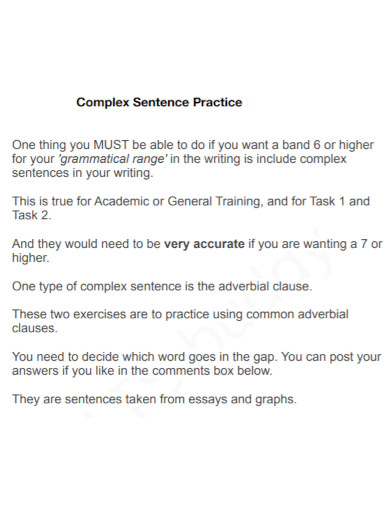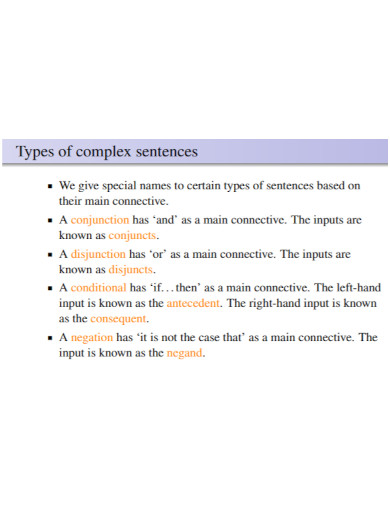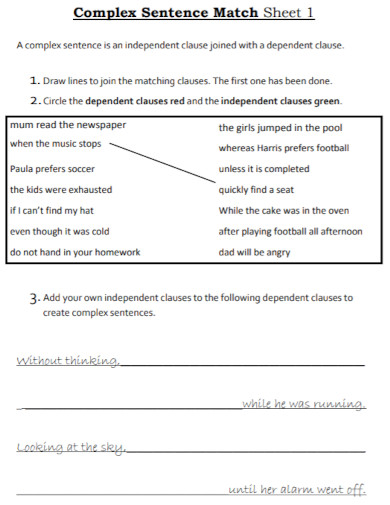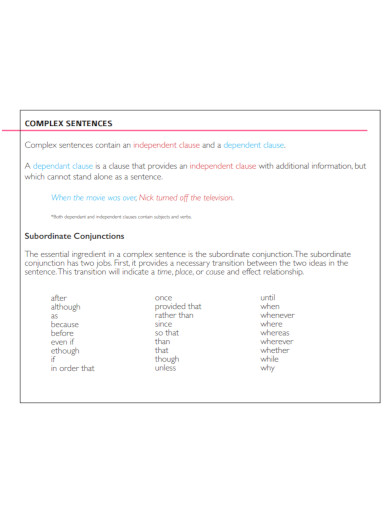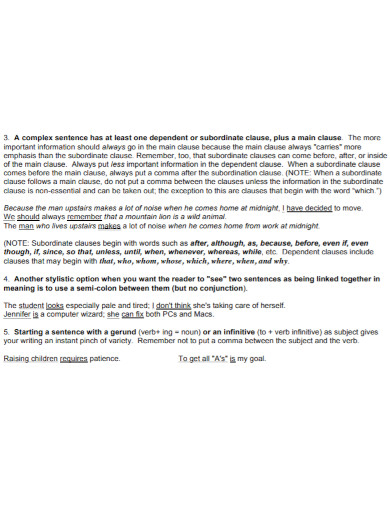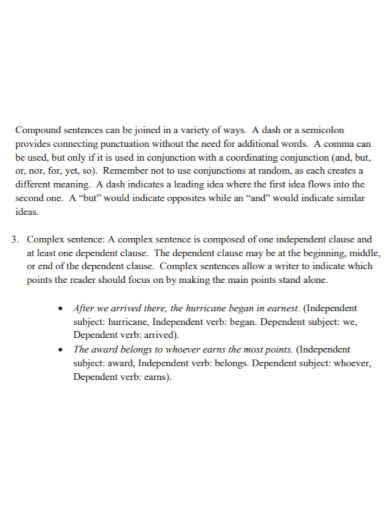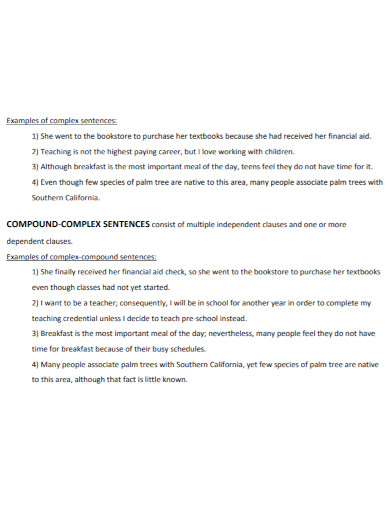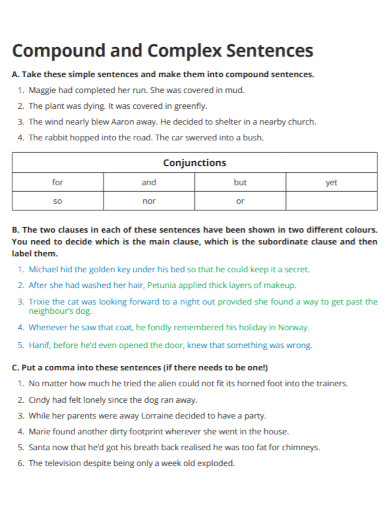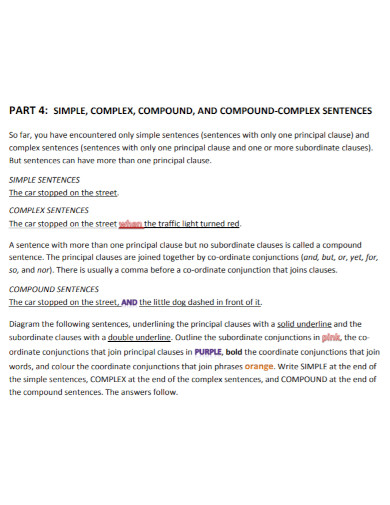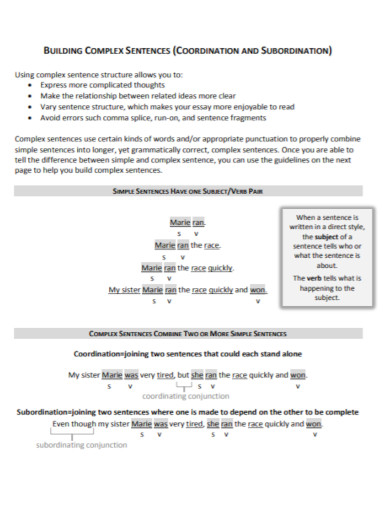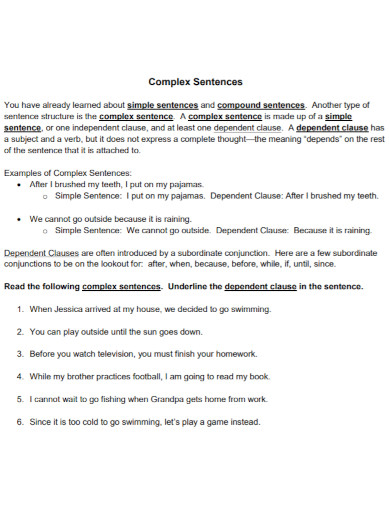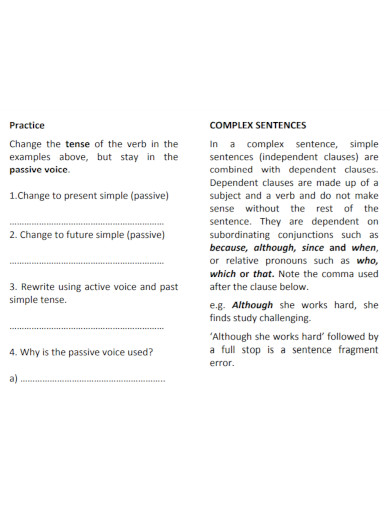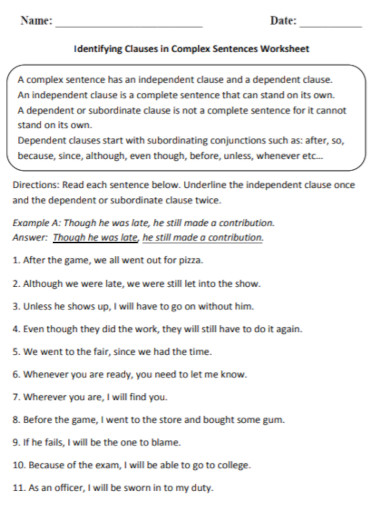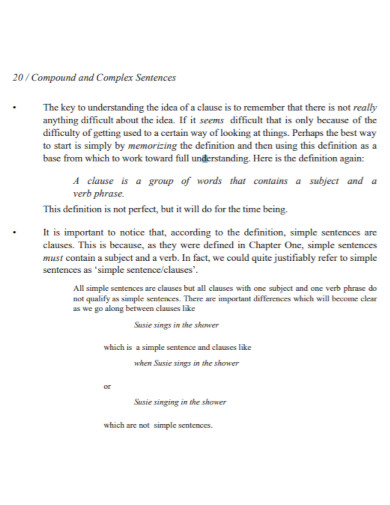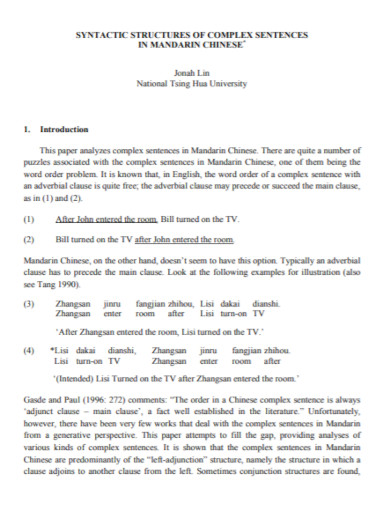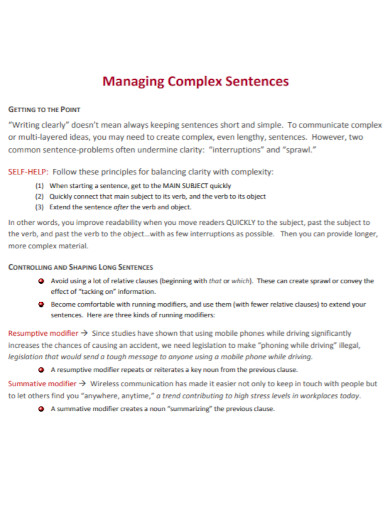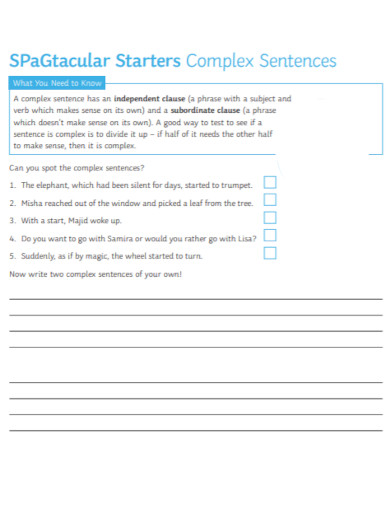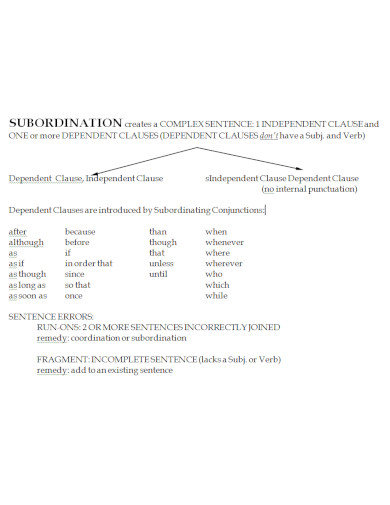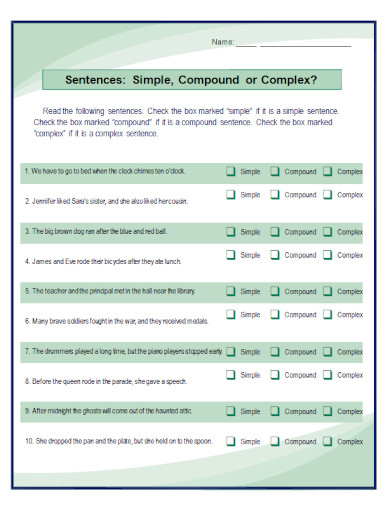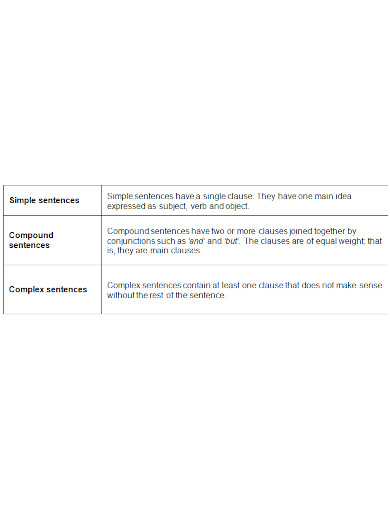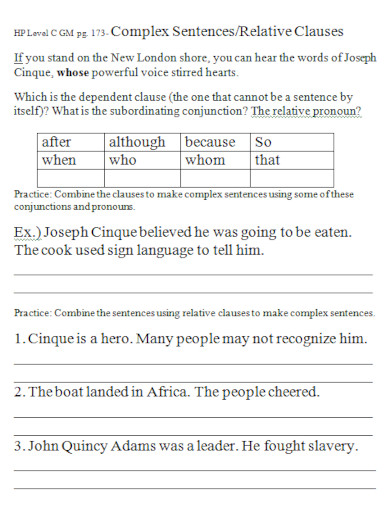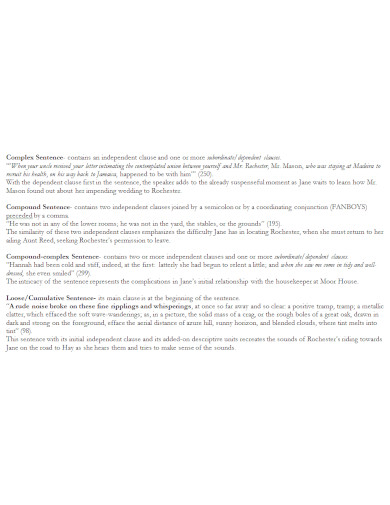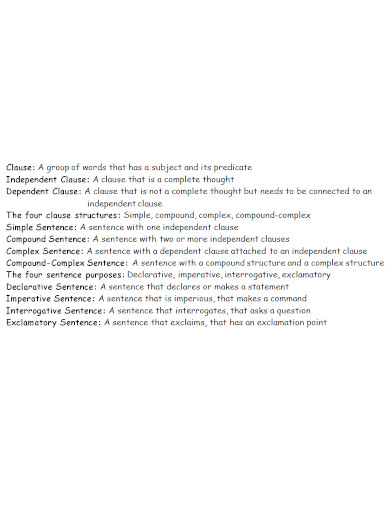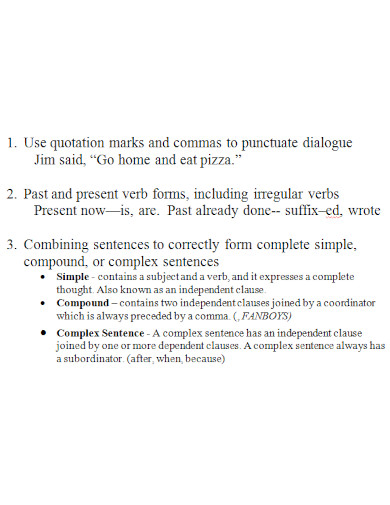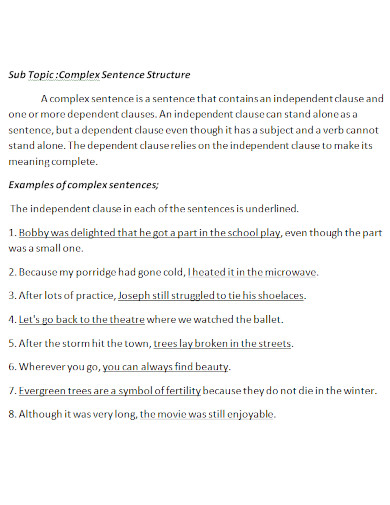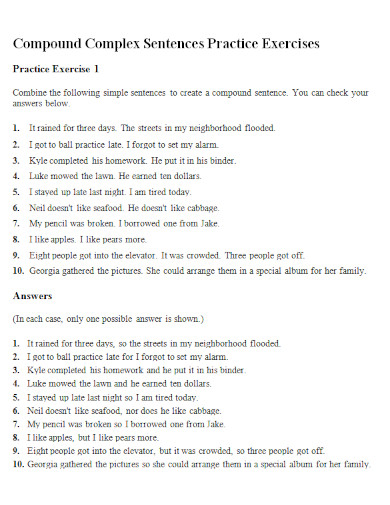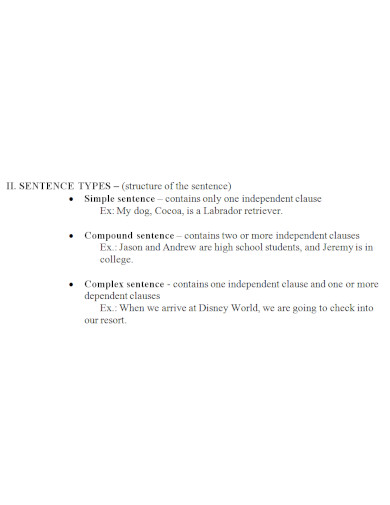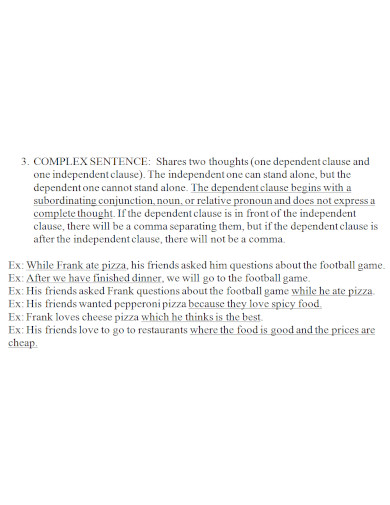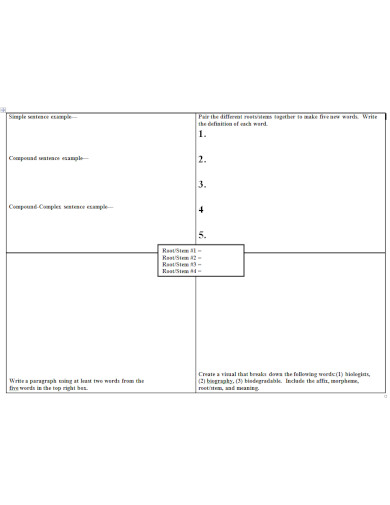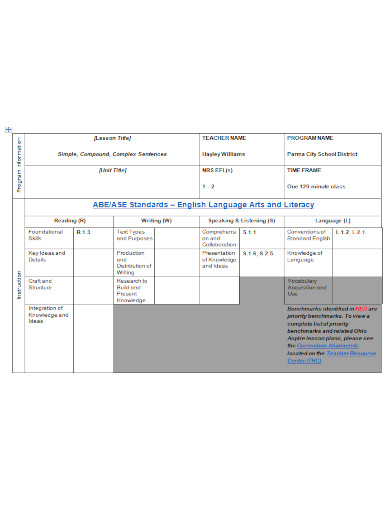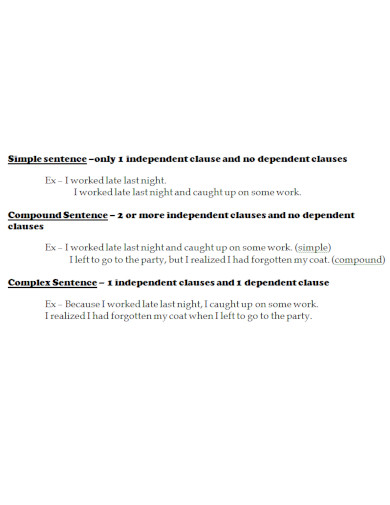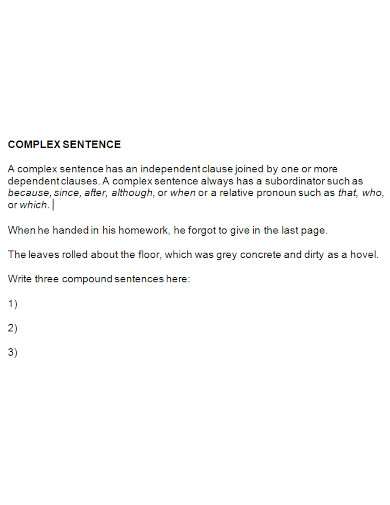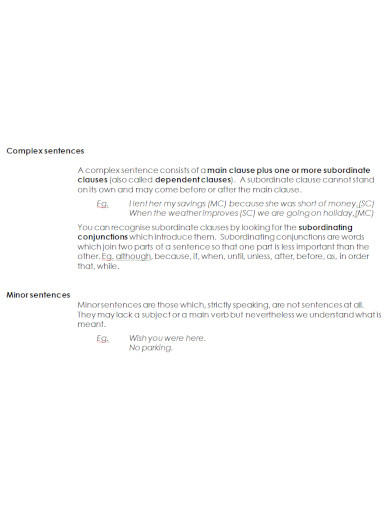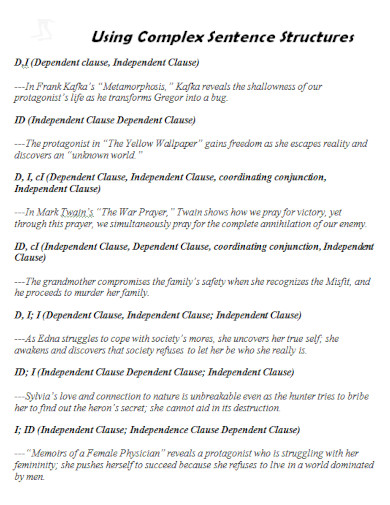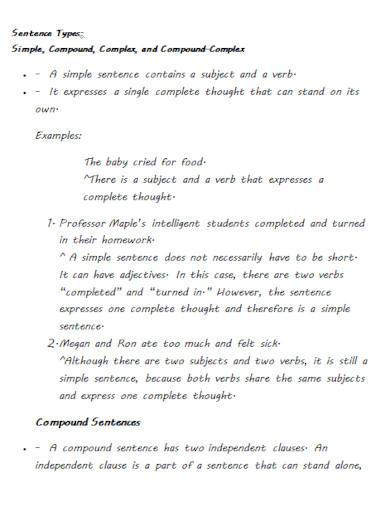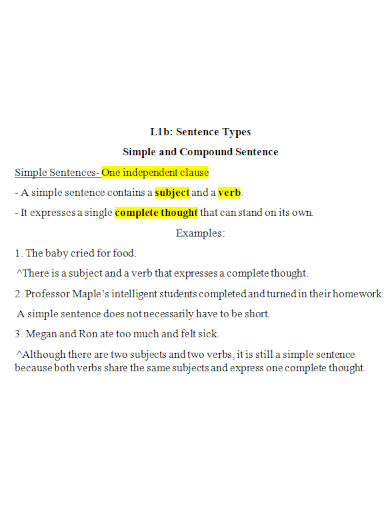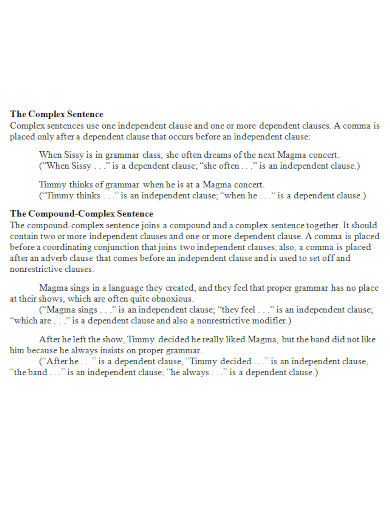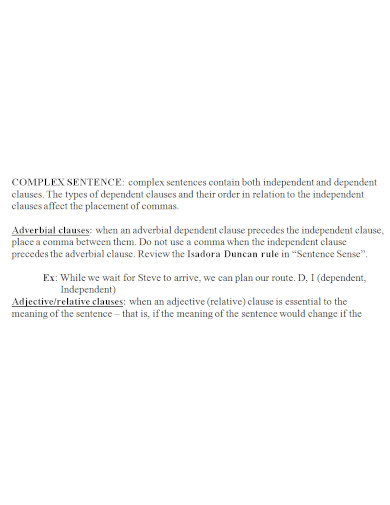100+ Complex Sentences Examples
There are four types of sentences people that can use to create compelling texts or speeches. One of the more nuanced and complicated sentences to write is referred to as a complex sentence.
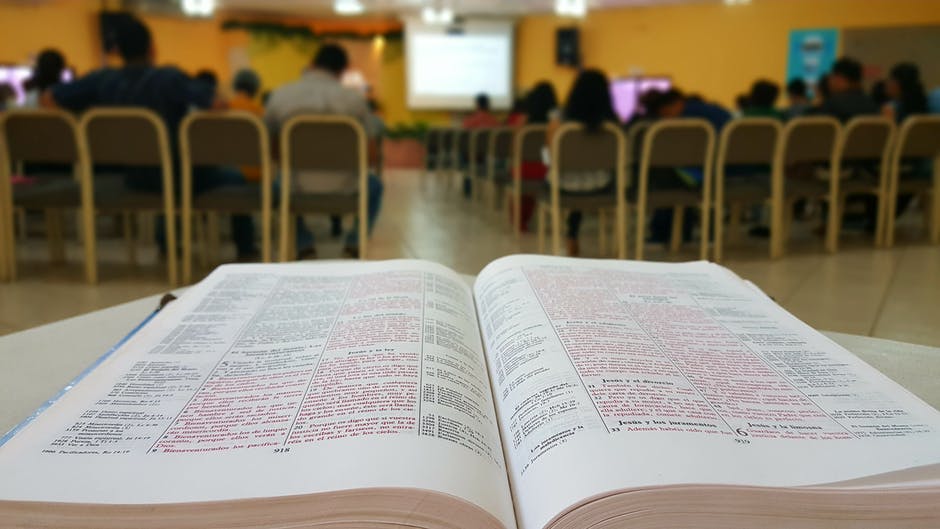

100+ Complex Sentences
1. Simple Complex Sentences
2. Complex Sentences Template
3. Complex Sentences Types
4. Complex Sentences with Examples
5. Simple and Complex Sentences
6. Clauses and Complex Sentences
7. English Grammar Complex Sentences
8. Complex Sentences Class Notes
9. Short Complex Sentences
10. Writing Complex Sentences
11. Spot the Complex Sentences
12. Complex Sentences Lesson
13. Structure of Complex Sentences
14. Complex Sentences Term
15. Complex Sentences in PDF
16. The Compound-Complex Sentence
17. Compound-Complex Sentences
18. Compound Complex Sentences Example
19. Printable Complex Compound Sentences
20. Development of Complex Sentences
21. Complex Sentences Worksheet
22. Complex English Sentences
23. Complex and Compound-Complex Sentences
24. Complex Sentences Comma Usage
25. Complex Sentences Notes
26. Complex Sentences Case Study
27. Complex Sentences Structures
28. Complex Sentences Transitions
29. Complex Sentences Rubric
30. Short Compound-Complex Sentences
31. Complex Sentences Processor
32. Distribution of Complex Sentences
33. Clause Processing in Complex Sentences
34. Processing Complex Sentences
35. Formal Complex Sentences
36. Complex Sentences Structure Example
37. Complex Sentences Skill Presentation
38. Complex Sentences Combining Activities
39. Transforming Complex Sentences
40. Dependent and Independent Complex Sentences
41. Complex Sentences Notes in PDF
42. Complex Sentences with Grammar
43. Conjunction Complex Sentences
44. Identify Complex Sentences
45. Concept of Complex Sentences
46. Complex Sentences Joiners
47. Sample Complex Sentences
48. Complex Sentences Sheet
49. Standard Complex Sentences
50. Simple, Compound and Complex Sentences
51. Individual Complex Sentences
52. Complex Sentences with Types of Complexity
53. Complex Sentences Worksheet in PDF
54. Subordinate Conjunctions Complex Sentences
55. Complex Sentences in Poetry
56. Complex Sentences of the Verb
57. Segmentation of Complex Sentences
58. Complex Sentences Exit Slip
59. Compound Complex Sentences in PDF
60. Complex Sentences Sheet Example
61. Acquisition of Complex Sentences
62. Syntax of Complex Sentences
63. Complex Sentences Handout
64. Complex Sentences Practice
65. Types of Complex Sentences
66. Complex Sentence Match Sheet
67. Professional Complex Sentences
68. Complex Sentence with Clauses
69. Complex Sentence Variety
70. Example of Complex Sentences
71. Complex Sentences for School
72. Sample Complex Sentences Example
73. Building Complex Sentences
74. Complex Sentences Simple Sheet
75. Complex Sentences in English
76. Identifying Clauses in Complex Sentence
77. Complex Sentences in PDF Template
78. Syntactic Structures of Complex Sentence
79. Managing Complex Sentences
80. Complex Sentences Activity Sheet
81. Complex Sentence Subordination
82. Complex Sentences in DOC
83. Standard Complex Sentences Examples
84. Complex Sentence Relative Clauses
85. Compound and Complex Sentences in DOC
86. Complex Sentences Grammar Sheet
87. One Page Complex Sentences
88. Complex Sentence Sub Topic
89. Complex Sentence Practice Exercises
90. Complex Sentences Structure in DOC
91. Complex Sentences with Six Examples
92. Complex Sentence Practise Paper
93. Complex Sentence Lesson Plan
94. Simple, Compound and Complex Sentence in DOC
95. Basic Complex Sentence Example
96. Complex and Minor Sentence
97. Using Complex Sentence Structures
98. Complex Sentence Notes in DOC
99. Complex Sentence for College
100. Children’s Complex Sentences
101. Complex Sentence Punctuation
What Are Complex Sentences?
A complex sentence is a specific type of sentence that is composed of one or more independent clauses paired with a dependent clause and connected with a single coordinating conjunction. A compound-complex sentence is a modified version of a complex sentence that has two independent clauses connected with a subordinating conjunction and a dependent clause with a coordinating conjunction.
How to Write Complex Sentences
A well-written complex sentence can provide the writer or speaker with a way to modify an idea or a statement with another clause, which can create a solid and nuanced message. Complex sentences are really easy to make when you have access to complex sentence templates, complex sentence examples, and complex sentence samples.
Step 1: Determine the Context of the Sentence
A good complex sentence has a coherent theme and tone among the clauses in the complex sentence. You must determine the context of the sentence as this will affect the clauses you will write in the sentence.
Step 2: Create an Outline For the Complex Sentence
Begin by creating an outline for the overall complex sentence. This outline will provide you with the direction and structural arrangement of all the clauses in the sentence.
Step 3: Write the Independent Clause
The independent clause is a sentence that can stand alone and will convey a message. Write a sentence with a noun and a verb, which can stand by itself.
Step 4: Write the Dependent Clause
A dependent clause is a modifier of the independent clause that cannot stand alone. as it will need an independent clause. Write a phrase with a noun, verb, and subordinating conjunction.
Step 5: Create the Complex Sentence
Piece together the independent clause with a dependent clause. Be sure to use a subordinating clause to connect the dependent clause to the independent clause.
FAQs
How do you identify a complex sentence?
A complex sentence has a specific sentence structure that has specific elements. To identify a complex sentence, you must first determine if the investigated sentence has these elements which are two or more independent clauses, a dependent clause, and a subordinating conjunction. To do this, you should dissect each part of the sentence that has these elements by searching for the subordinating conjunction. This is because this conjunction connects the dependent clause to the independent clause, which will allow you to distinguish between the clauses in the sentence.
Compound vs. complex sentences; what is the difference between a compound and a complex sentence?
A compound sentence is a type of sentence that has a specific structure of two or more independent clauses connected by a coordinating conjunction or a comma, colon, or semicolon. Writers often use compound sentences to merge two stand-alone and related sentences into a single unified sentence. A complex sentence is a type of sentence that has a specific structure of two or more independent clauses, a dependent clause, and a subordinate conjunction. The main difference between these two types of sentences is their main usage and the sentence structure they have.
What is the main usage of a complex sentence?
A complex sentence allows the writer to create nuanced and complex scenarios due to the way this sentence is structured. The dependent clause acts as a modifier to the independent clause, which is similar to how a suffix or a prefix modifies a word. The complex sentence allows the writer or speaker to create a correlation or a cause-and-effect relationship between the points raised by the clauses in the statement.
A complex sentence is a specific type of sentence structure that presents a more nuanced point or message when compared to a simple sentence. A well-written complex sentence allows the writer to properly provide well-paced events or ideas to their readers. In conclusion, writers who know how to use complex sentence structure can provide well-thought-out and detailed ideas to their readers in a single sentence.



